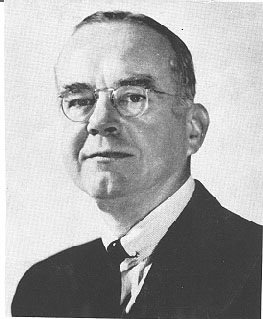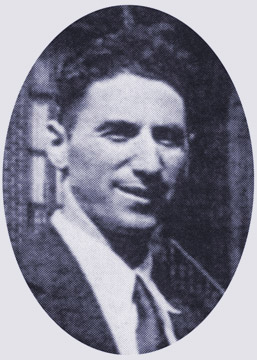
Trotskyism is the political ideology and branch of Marxism developed by Russian revolutionary and intellectual Leon Trotsky along with some other members of the Left Opposition and the Fourth International. Trotsky described himself as an orthodox Marxist, a revolutionary Marxist, and a Bolshevik–Leninist as well as a follower of Karl Marx, Frederick Engels, Vladimir Lenin, Karl Liebknecht, and Rosa Luxemburg. His relations with Lenin have been a source of intense historical debate. However, on balance, scholarly opinion among a range of prominent historians and political scientists such as E.H. Carr, Isaac Deutscher, Moshe Lewin, Ronald Suny, Richard B. Day and W. Bruce Lincoln was that Lenin’s desired “heir” would have been a collective responsibility in which Trotsky was placed in "an important role and within which Stalin would be dramatically demoted ".

The Fourth International (FI) was a political international established in France in 1938 by Leon Trotsky and his supporters, having been expelled from the Soviet Union and the Communist International.

James Burnham was an American philosopher and political theorist. He chaired the New York University Department of Philosophy; his first book was An Introduction to Philosophical Analysis (1931). Burnham became a prominent Trotskyist activist in the 1930s. A year before he wrote the book, he rejected Marxism and became an influential theorist of the political right as a leader of the American conservative movement. His most famous book, The Managerial Revolution (1941), speculated on the future of an increasingly proceduralist hence sclerotic society. Burnham was an editor and a regular contributor to William F. Buckley's conservative magazine National Review on a variety of topics. He rejected containment of the Soviet Union and called for the rollback of communism worldwide.
Shachtmanism is the form of Marxism associated with Max Shachtman (1904–1972). It has two major components: a bureaucratic collectivist analysis of the Soviet Union and a third camp approach to world politics. Shachtmanites believe that the Stalinist rulers of proclaimed socialist countries are a new ruling class distinct from the workers and reject Trotsky's description of Stalinist Russia as a "degenerated workers' state".
Max Shachtman was an American Marxist theorist. He went from being an associate of Leon Trotsky to a social democrat and mentor of senior assistants to AFL–CIO President George Meany.

Martin "Marty" Abern was a Marxist politician who was an important leader of the Communist youth movement of the 1920s as well as a founder of the American Trotskyist movement.
Raya Dunayevskaya, later Rae Spiegel, also known by the pseudonym Freddie Forest, was the American founder of the philosophy of Marxist humanism in the United States. At one time Leon Trotsky's secretary, she later split with him and ultimately founded the organization News and Letters Committees and was its leader until her death.
In political ideology, a deviationist is a person who expresses a deviation: an abnormality or departure. In Stalinist ideology and practice, deviationism is an expressed belief which does not accord with official party doctrine for the time and area. Accusations of deviationism often led to purges. Forms of deviationism included revisionism, dogmatism, and bourgeois nationalism.
Edward Hugo Oehler (1903–1983) was an American Trotskyist.
Albert Glotzer (1908–1999), also known as Albert Gates, was a professional stenographer and founder of the Trotskyist movement in the United States. He was best remembered as the court reporter for the 1937 John Dewey Commission that examined the Stalinist charges against Trotsky in Mexico City and as a memoirist and activist in the social democratic movement in his later years.
Marxism is a method of socioeconomic analysis that originates in the works of 19th century German philosophers Karl Marx and Friedrich Engels. Marxism analyzes and critiques the development of class society and especially of capitalism as well as the role of class struggles in systemic, economic, social and political change. It frames capitalism through a paradigm of exploitation and analyzes class relations and social conflict using a materialist interpretation of historical development – materialist in the sense that the politics and ideas of an epoch are determined by the way in which material production is carried on.
The International Committee of the Fourth International (ICFI) is a public faction of the Fourth International founded in 1953. Today, two Trotskyist internationals claim to be the continuations of the ICFI; one with sections named Socialist Equality Party which publishes the World Socialist Web Site, and another linked to the Workers Revolutionary Party in the UK.

The Workers Party (WP) was a Third Camp Trotskyist group in the United States. It was founded in April 1940 by members of the Socialist Workers Party who opposed the Soviet invasion of Finland and Leon Trotsky's belief that the USSR under Joseph Stalin was still innately proletarian, a "degenerated workers' state." They included Max Shachtman, who became the new group's leader, Hal Draper, C. L. R. James, Raya Dunayevskaya, Martin Abern, Joseph Carter, Julius Jacobson, Phyllis Jacobson, Albert Glotzer, Stan Weir, B. J. Widick, James Robertson, and Irving Howe. The party's politics are often referred to as "Shachtmanite."
The third camp, also known as third camp socialism or third camp Trotskyism, is a branch of socialism that aims to oppose both capitalism and Stalinism by supporting the organised working class as a "third camp".

The Communist League of America (Opposition) was founded by James P. Cannon, Max Shachtman and Martin Abern late in 1928 after their expulsion from the Communist Party USA for Trotskyism. The CLA(O) was the United States section of Leon Trotsky's International Left Opposition and initially positioned itself as not a rival party to the CPUSA but as a faction of it and the Comintern. The group was terminated in 1934 when it merged with the American Workers Party headed by A. J. Muste to establish the Workers Party of the United States.
The Revolutionary Workers League (RWL) was a radical left group in the United States, lasting from 1935 through 1946. It was led by Hugo Oehler and published The Fighting Worker newspaper.

James Patrick Cannon was an American Trotskyist and a leader of the Socialist Workers Party.
In Trotskyist political theory, a degenerated workers' state is a dictatorship of the proletariat in which the working class' democratic control over the state has given way to control by a bureaucratic clique. The term was developed by Leon Trotsky in The Revolution Betrayed and in other works.

The Socialist Workers Party (SWP) is a communist party in the United States. The SWP began as a group which, because it supported Leon Trotsky over Soviet leader Joseph Stalin, was expelled from the Communist Party USA. Since the 1930s, it has published The Militant as a weekly newspaper. It also maintains Pathfinder Press.
The anti-Stalinist left is a term that refers to various kinds of Marxist political movements that oppose Joseph Stalin, Stalinism, Neo-Stalinism and the system of governance that Stalin implemented as leader of the Soviet Union between 1924 and 1953. This term also refers to the high ranking political figures and governmental programs that opposed Joseph Stalin and his form of communism, such as Leon Trotsky and other traditional Marxists within the Left Opposition. In Western historiography, Stalin is considered one of the worst and most notorious figures in modern history.









